Episodes

Tuesday Feb 13, 2018
Is Reading Plato Necessary for Salvation? with Dr. Thaddeus Kozinski
Tuesday Feb 13, 2018
Tuesday Feb 13, 2018
During their years at Wyoming Catholic College, students study a number of Platonic dialogues. Plato, we believe, has a great deal to say to us. His writings are central to Western civilization. But what about our personal lives? Is Plato in any sense central to or even important to our lives as Christian people?
Wyoming Catholic College Academic Dean Dr. Thaddeus Kozinski in a recent lecture entitled, "Is Reading Plato Necessary for Salvation?" argued that Plato is vital to our spiritual lives as humans and as Christian believers.
Dr. Kozinski is this week's guest on this The After Dinner Scholar interview. We are also making his entire lecture is available as a podcast.
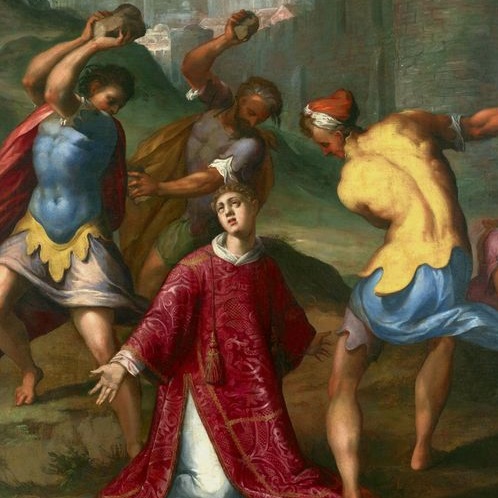
Tuesday Feb 06, 2018
To the Ends of the Earth: The Acts of the Apostles with Prof. Kyle Washut
Tuesday Feb 06, 2018
Tuesday Feb 06, 2018
“To many persons,” preached St. John Chrysostom, “this Book is so little known, both it and its author, that they are not even aware that there is such a book in existence. For this reason especially I have taken this narrative for my subject, that I may draw to it such as do not know it, and not let such a treasure as this remain hidden out of sight.”
The book to which St. John Chrysostom referred was the Acts of the Apostles, the second volume in St. Luke’s telling of the story of Jesus. “In the first book, O Theophilus,” Luke wrote, “I have dealt with all that Jesus began to do and teach.” In this second book, the Acts of the Apostles, Luke would deal with all Jesus through the Holy Spirit continued to do and teach.
Wyoming Catholic College Professor Kyle Washut has been teaching Acts to our freshmen this winter, sharing his insights and theirs with us on this installment of the After Dinner Scholar.
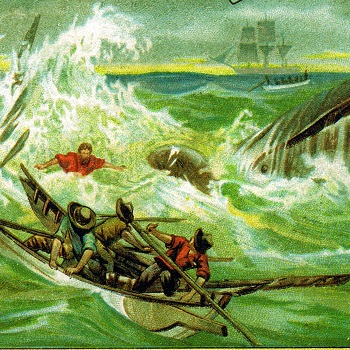
Tuesday Jan 30, 2018
The Paradox of Courage with Dr. Glenn Arbery
Tuesday Jan 30, 2018
Tuesday Jan 30, 2018
In the book Orthodoxy, G. K. Chesterton wrote about courage: “No quality has ever so much addled the brains and tangled the definitions of merely rational sages. Courage is almost a contradiction in terms. It means a strong desire to live taking the form of a readiness to die.”
Courage is vital in facing battle, persecution or martyrdom, sickness, and death. It is central to spiritual battles and speaking the truth of the Gospel to our neighbors. Relationships with others—husband/wife, parent/child, friend and friend—often require courage. And among successful executives, managerial courage in decision making is a sought-after trait.
At the same time, the word courage is used to cover up all sorts of questionable behavior and prudence requires that we know the real thing from its counterfeits. That’s why the topic of the 2018 Wyoming School of Catholic Thought—June 10-14 here in Lander, Wyoming—is “The Paradox of Courage.”
This week to give us a foretaste of the school, our guest is Wyoming Catholic College President Dr. Glenn Arbery.
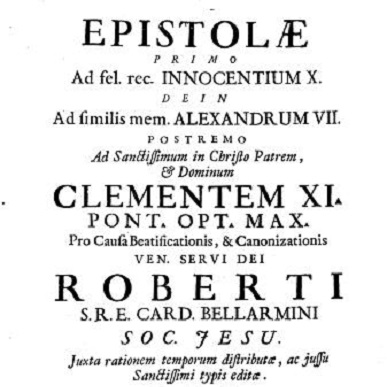
Tuesday Jan 23, 2018
A Universal Language for a Universal Church with Dr. Scott Olsson
Tuesday Jan 23, 2018
Tuesday Jan 23, 2018
While vernacular languages will continue to be our normal way of communicating and doing business, there is something fitting about a universal Church, a Church comprising “every tribe and tongue and people and nation” having a universal language: Latin.
At Wyoming Catholic College, we invite our undergraduate students, our podcast listeners, and participants in the Wyoming School of Catholic Thought into the great conversation that is Western civilization. Since much of that conversation in the world and in the Church occurred in Latin, it makes perfect sense that we would encourage—and with our undergraduates require—Latin as a read and spoken language.
Our guest this week, Dr. Scott Olsson is Associate Professor of Mathematics and the Natural Sciences at Wyoming Catholic College. At the same time, he has an abiding passion for Latin, a passion he passes on to his students and to his children.

Tuesday Jan 16, 2018
Pope Paul VI, Humanae Vitae, and the March for Life with Dr. Jeremy Holmes
Tuesday Jan 16, 2018
Tuesday Jan 16, 2018
Forty-five years ago, on January 22, 1973, the U. S. Supreme Court decided the case Roe v. Wade thereby overturning all state laws and legalizing abortion on demand across the United States. Beginning the following January, a small group began what they called The National March for Life. Since then, the March has grown into a vast gathering on the Mall in Washington, DC and in cities across the country protesting the legalized murder of the innocents in their mothers’ wombs.
Rather than viewing abortion as an isolated issue, it’s important to remember that the desire for sex without the consequence of children is part of a much larger cultural crisis, a cultural crisis Pope Paul VI outlined in Humanae Vitae.
While Humanae Vitae is known as that encyclical about birth control, the issues it raises apply directly to abortion as well. Wyoming Catholic College theologian, Dr. Jeremy Holmes joins us this week to talk about the encyclical and its relationship to abortion.
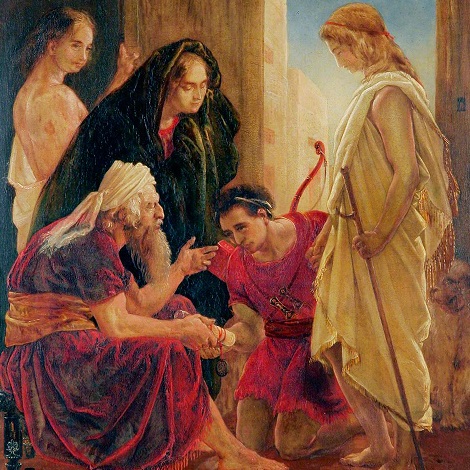
Tuesday Jan 09, 2018
Tuesday Jan 09, 2018
The story of Tobit takes place during the exile in Assyria. When Nebuchadnezzar’s Babylonian army took the people of Judah and Jerusalem into captivity, the people went with God’s promise of return. Two hundred years earlier, when the Assyrians captured Israel, that is, the Northern Kingdom, the people went into exile with no such promise or hope of returning. The so-called “ten lost tribes,” already thoroughly paganized in their religion, simply assimilated into Assyrian society.
But not Tobit. Though exiled, living in Nineveh, and working for the king, he had not apostatized like his fellow Israelites. He followed the Lord wholeheartedly and kept His commands carefully. Like Job he was brought low and like Job he finally saw his vindication.
Dr. Kent Lasnoski taught Tobit to Wyoming Catholic College freshmen during the fall semester.
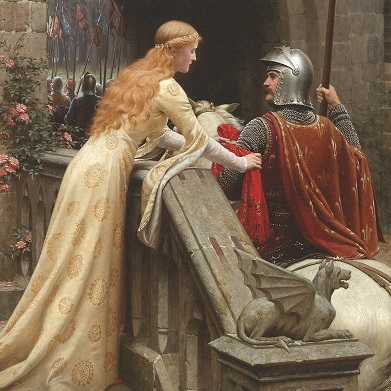
Tuesday Jan 02, 2018
Sir Gawain and the Green Knight, Part 3 with Dr. Ben Lockerd
Tuesday Jan 02, 2018
Tuesday Jan 02, 2018
“The answers to the errors of modern times need to be given in philosophy and theology,” wrote Dr. Benjamin Lockerd, “but it is essential that our students also experience the truth imaginatively.”
This is the third and final installment in our podcast series on Sir Gawain and the Green Knight the Wyoming Catholic College 2017-18 Book of the Year. It’s a book that highlights the Catholic intellectual tradition and the liberal arts and one we especially recommend that you read and study.
Our guest on this third podcast is Dr. Benjamin Lockerd, Professor of English at Grand Valley State University in Grand Rapids, Michigan. Dr. Lockerd is a member of the Wyoming Catholic College Catholic Scholars Advisory Board.
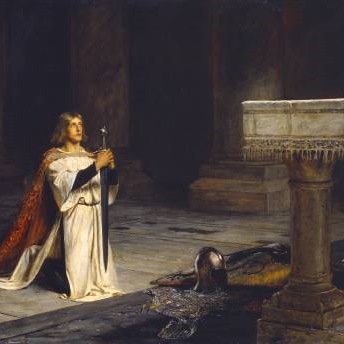
Tuesday Dec 26, 2017
Sir Gawain and the Green Knight, Part 2 with Dr. Kent Lasnoski
Tuesday Dec 26, 2017
Tuesday Dec 26, 2017
Wandering lost in a wild land on Christmas Eve, Sir Gawain prayed, “I beg of you, O Lord, and Mary, that most merciful of mothers, and most dear, find me safe lodgings in some house, devoutly to hear Mass, and then your matins tomorrow morning. I meekly ask you, and to this purpose I promptly pray my Pater and my Ave, and Creed.”
Last week we looked at the fourteenth century poem Sir Gawain and the Green Knight from a literary point of view. Our college president Dr. Glenn Arbery helped us understand the story, its structure, and its context.
But the anonymous author of the tale about Sir Gawain was interested in more than telling a good story. He had a clear theological and spiritual purpose as well. Sir Gawain and the Green Knight is an intensely Christian poem. To help us understand how that’s the case, our guest this week is theologian Dr. Kent Lasnoski.
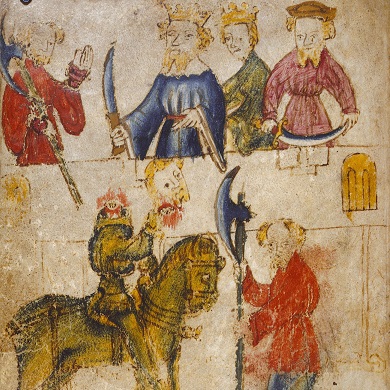
Tuesday Dec 19, 2017
Sir Gawain and the Green Knight, Part 1 with Dr. Glenn Arbery
Tuesday Dec 19, 2017
Tuesday Dec 19, 2017
It was Christmas time, and King Arthur and his Knights of the Round Table gathered to celebrate the courted Camelot. Amid the merriment and mirth of New Year's Eve, a huge knight rode into the festive hall. He was clad in green armor that perfectly matched his green hair, green skin, and green horse. With him, he brought a holly branch, a huge battle ax, and a strange game.
Beginning this year, Wyoming Catholic College will select a book of the year, some work that highlights the Catholic intellectual tradition and the liberal arts. This year's book of the year is the anonymous 14th century masterpiece, Sir Gawain and the Green Knight.
Sir Gawain and the Green Knight, wrote JRR Tolkien, “Is a romance, a fairy tale for adults, full of life and color.” In this, the first of three podcasts on the poem, Dr. Glenn Arbery, president of Wyoming Catholic College introduces us to this strange tale.
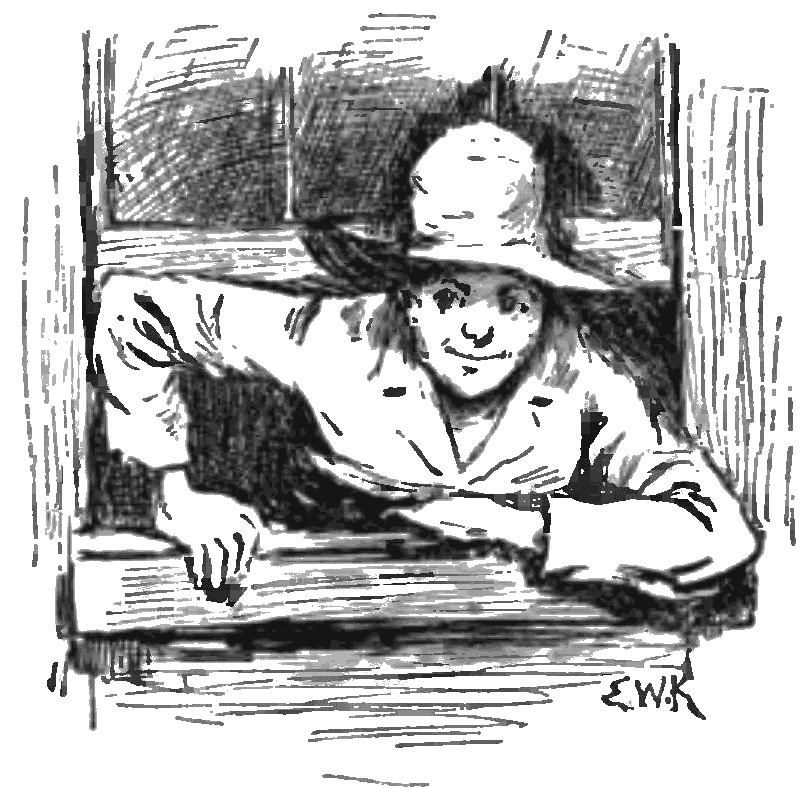
Tuesday Dec 12, 2017
Tuesday Dec 12, 2017
December 15 is Bill of Rights Day and when we asked political philosopher, Dr. Virginia Arbery if she’d be willing to talk with us about the Bill of Rights, she said she’d be happy to talk about rights, but rather than the Bill of Rights, she suggested we discuss Mark Twain’s novel, The Adventures of Huckleberry Finn.
Twain’s story about the friendship and travels of Huck, a runaway boy and Jim a runaway slave explores right and wrong, freedom and bondage, conscience rightly formed and conscience poorly formed, rights and responsibilities.
Dr. Arbery is Associate Professor of Humanities at Wyoming Catholic College.

